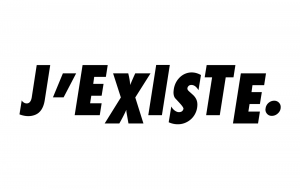Motivation: It comes down to Values
Easy targets. Easy mind.
June 21, 2022Fall into Focus
October 27, 2022Values, Goals & Motivation
Motivation is a fundamental skill. Therefore, it can be learned, monitored, and adjusted. Motivation, has a lot to do with goals, and goals are reflections of our values. The root of motivation, or lack of, can be found in our values.
Values are simply things, beliefs & ideas that we prioritize, or feel is important to our engagement with an activity and in the world. Our self-image is a collection of our values into a general idea, or concept, about who we are that we carry around.

Most athletes that are on the edge of burnout, or are disenchanted with their sport, usually have flawed values & an existentially shaky self-image, which in turn spawns bad goals and usually leads to sub-optimal performances.
Flawed values are ones that depend on other people, are transient, and generally lack existential definition without rank. That is to say, they solely depend on results, comparison, & entirely require recognition from outside.
The interesting thing about goals, is when goals & reality come together, usually in the confluence of competition, they tend to validate or question our self-image. Pain, for athletes in sport is the disconnect or gap between our self-image and reality. In other words, when the reality of our sport outcomes do not conform to our self-image, or the image we have held about how something should go, it’s painful.
On way to think about this is to break goals down to 3 types:
Outcome
Process
& Existential
. . .or
Whats
Hows
& Whys
For example, let’s pretend that I value being recognized for winning, and/or going to the Olympics (which means I have to be better than x-person(s), because being recognized for these things I have been told will provide fulfillment & will validate who I am, and why I’m here.
My goals would then be:
-Going to the Olympics (What).
-Training more/harder than x-person (How).
-Thus, beating x-person(s) and going to the Olympics validates my identity/self-image & provides recognition, which in this situation would be, by default, my (Why) goal, or my existential anchor.
The what & how goals in this situation are not bad goals, per se, but rather rooted in a flawed value (recognition). All is well existentially, as long as I beat x-person & go to the Olympics. If I don’t, or when my sport reality benchmarks along the way aren’t lining up with this goal trajectory, then all existential heck breaks loose, and I usually quit if it’s too painful. These are flawed goals, and are driven by a value that requires recognition.
On the other hand, my value/self image is:
-Being a curious athlete that is interested in how good I can get (mastery), and pushing myself against/with others in an environment that I like, my what’s, how’s, & why’s can have diversity, and this is motivationally healthy & liberating.
In this situation, my whats can still be to beat to x-person & go to the Olympics.
My how goal can be to train in ways that push my boundaries.
However, my why’s can be much more existentially validating & diverse, such as: I like how it feels when I get better, or when I have the fitness or ability to rise to the challenge of a big race or event. Note that both of these why goals don’t need one crucial thing to exist: recognition by others. A wider variety of reality is now open to find harmony with my self-image. I have a larger runway. Pain is much more manageable, if present at all, and resilience is then a natural outcome of situations when reality does not align with our what goals.
Value: Mastery, Progress
Outcome Goal: Winning/Going to Olympics
Process: Pushing edge of one’s ability in every training opportunity
Existential: Feeling of flow when ability is tested with proper challenge
This process trickles down to everything we do, including parenting & coaching. You can apply this framework to the values & goals for both groups, and even well into life after sport.
 (French art/graffiti term that simply means “I exist”.)
(French art/graffiti term that simply means “I exist”.)
For parents & coaches, this process is tantamount to understanding where a youth athlete is in their sport, and understanding that their developmental process makes it much harder to key in on the whys than say for an adult. It’s important for parents, in particular, to understand the interplay of an athlete’s why, what, & how goals. More often than not, an athlete’s values come directly from their environment, of which parents are curators. This is why, for example, knowing when it might be appropriate to skip a training and go ski powder is the nuance & art of parenting a young winter athlete. Sensing where/when an athlete is out of balance from this perspective is the nuanced space from which good sport parenting roots itself. Our culture, with the help of social media, has shifted toward an erroneous view that attention equates to success. Furthermore, the most basic fundamental desire to be recognized, as we are, unconditionally, has been somewhat lost. Young athletes are mistaken in believing that they need whats, achievements, posts & likes to exist. Many argue that our most important task as parents is to simply recognize our kids as they are, unconditionally, and to let them unfold as they are. . .not as we want them to be. To say with every act: You exist, and that is enough. If this message is conveyed often, and believed, the desire of the young athlete to existentially cling to what goals softens, and the curiosity to explore mastery burgeons.
For coaches, the management of reality with appropriate what goals is the essence of coaching. Too many coaches are not real enough with their athletes. That is to say, they allow for what goals that are simply unrealistic, thus creating a scenario for pain (when reality contradicts self-image). Understanding an athlete’s why goals is important, but a coach cannot directly create those for them, even though they can continually prod and guide in the why direction to help an athlete find balance. Coaches are the experts in building the how goal bridges to what goals, and good coaches are consistently monitoring an athlete’s what, why & how goals and providing objective feedback as to their progress.
Most athletes, when asked about goals, are pretty good at defining whats & hows. That’s easy, and they usually start there. However, the why’s are much tougher, particularly if you don’t have well-defined, and existentially healthy values that are not dependent on recognition by others. If you are driven by ego & being recognized and/or being better than others, that will get you only so far, before the rotten recognition value foundation collapses beneath you. At that point you may find yourself in an existential abyss with little to no motivation or understanding of how you got there, or how to get out.
Success is mastery in the long run, not likes & hollow emojis in the present.
The key to long-term motivation & engagement, is examining your values & self-image, and starting the process with why goals. Ask yourself a simple question: Would you be doing what you are doing, if no one was watching? In other words, if your why goals are driven by recognition (bad value), you’re going to have a problem at some point. However, if you can tap into the things that you value in your sport that don’t depend on recognition, that you would do for the sake of themselves, then we are on the path to establishing some good values & a healthy self-image, and subsequently, healthy goals that have balance in the Motivational What-How-Why framework.

